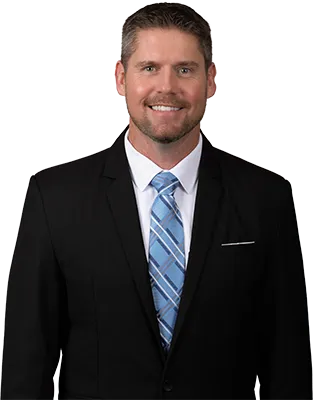If you’re considering purchasing a home in Ocala, Florida, it’s crucial to assess your financial readiness for such a significant investment. The first lending principle to keep in mind is that your monthly housing cost should not exceed 32% of your gross monthly family income. This principle, known as the Gross Debt Service (GDS) ratio, helps ensure that you can comfortably manage your housing expenses. Let’s take a look at the factors to consider when buying a home and try to answer the question “how much money should you have before buying a house in Ocala?”
Key Takeaways:
- Financial Considerations: Ensure your monthly housing cost aligns with the recommended guideline of not exceeding 32% of your gross monthly family income, a principle known as the Gross Debt Service (GDS) ratio.
- Market Insights for Ocala: As of November 2023, the median home sold price in Ocala is $277,721, experiencing a 4.7% increase from the previous year. Understanding local market trends is crucial for potential homebuyers.
- Practical Tools: Utilize resources like free mortgage closing cost calculators and mortgage payment estimators to assess your financial readiness and plan for additional expenses when buying a house in Ocala, Florida.
As of September 2023, the median home price in Florida is $409,243. To secure a home in Ocala, a city located in Marion County, you should aim for a 20% down payment on the median home price, which amounts to $81,848, in addition to covering closing costs. It’s important to note that these figures are general guidelines, and individual financial situations may vary.
According to Bankrate, the annual income required to afford a median-priced home varies across different metro areas in Florida. For Ocala, specific data indicates that the median home sold price was $277,721 in November 2023, reflecting a 4.7% increase from the previous year. This information gives potential homebuyers a snapshot of the local market, allowing them to better understand the affordability landscape in Ocala.
Down Payment for a New Home
The minimum down payment for a conventional mortgage loan in Florida is 3%, but it’s essential to be aware that bringing less than 20% down will require private mortgage insurance (PMI) [^3^]. To qualify for a conventional mortgage, a credit score of at least 620 points and a debt-to-income ratio of no more than 43% are generally required.
For first-time homebuyers, understanding the local real estate market is crucial. In Marion County, where Ocala is situated, the median starter home price is $120,000, while rural estates and horse farms can range from $450,000 to as high as $6 million. These details provide valuable insights into the diverse real estate options available in the region.
Closing Expenses
To estimate your closing expenses on a home mortgage in Ocala, you can use free Ocala, Marion County, Florida mortgage closing costs calculator, like one provided by RK Mortgage Group. This tool helps you quickly assess the additional costs associated with closing on a property, allowing for more accurate financial planning.
Post Closing Expenses – Making The Home Yours
When budgeting for a new home in Ocala, Florida, it’s essential to consider not only the purchase price but also the additional costs associated with making the new house a comfortable and appealing home. Here are key factors to account for post-closing to ensure a smooth transition and enhance curb appeal:
1. Home Maintenance and Repairs:
Allocate funds for potential maintenance and repairs that may be needed after moving in. This includes any immediate fixes or upgrades required to address issues identified during the home inspection.
2. Furniture and Decor:
Budget for furniture, decor, and personal touches to make the space your own. This includes essential furnishings for each room, as well as decorative items to enhance the aesthetics of your new home.
3. Landscaping and Curb Appeal:
Enhance the exterior of your home by investing in landscaping and curb appeal. Consider planting flowers, shrubs, or trees, and allocate funds for lawn maintenance tools or services. Outdoor lighting and minor exterior improvements can also contribute to the overall appeal of your property.
4. Utilities and Set-Up Costs:
Plan for utility set-up costs and initial payments. This includes connecting or transferring services for electricity, water, gas, internet, and cable. Be prepared for potential deposits or activation fees.
5. Homeowners Insurance and Property Taxes:
Factor in the cost of homeowners insurance and property taxes. These ongoing expenses are critical to maintain the financial stability of your home and should be included in your post-closing budget.
6. Appliances and Home Essentials:
Consider any necessary purchases of appliances or essential items that may not be included in the sale. This could include kitchen appliances, washer and dryer, or other household necessities.
7. Home Security Measures:
Invest in home security measures to ensure the safety of your new property. This may include installing a security system, upgrading locks, or adding outdoor cameras.
8. Emergency Fund:
Establish or replenish an emergency fund for unexpected expenses. Having a financial cushion can provide peace of mind and help cover unforeseen costs that may arise after moving in.
9. Local Services and Amenities:
Explore local services and amenities, such as waste disposal services, community fees, or neighborhood association fees. These costs can vary, and it’s essential to factor them into your ongoing budget.
10. Personal Touches and Upgrades:
Set aside funds for personal touches and desired upgrades. Whether it’s customizing paint colors, upgrading flooring, or adding smart home features, having a budget for personalization allows you to tailor the space to your preferences.
By considering these factors in your budgeting process, you can ensure a smoother transition into your new home in Ocala, Florida, and create a living space that aligns with your lifestyle and preferences.
How Much Money Should You Have Before Buying a House in Ocala Final Thoughts…
Before buying a house in Ocala, Florida, it’s essential to consider your financial capacity, understand the local real estate market, and be aware of the specific requirements for mortgage eligibility. By carefully evaluating these factors, potential homebuyers can make informed decisions that align with their financial goals and ensure a smooth transition into homeownership.
Who is the Top Realtor in Ocala, Florida?

If you’re searching for the best realtor in Ocala and the surrounding area, look no further than Scott Coldwell and Your Home Sold Guaranteed Realty - Coldwell Real Estate Services. With 20 years of experience in the industry, we have what it takes to help you find the home of your dreams.
Contact us today to learn about the exclusive benefits of our VIP Buyer Program. As a member of our program, you’ll gain access to the latest listings through our property hotlists, free educational resources, and unique buyer guarantees. This includes our Buy it Back Guarantee and Buyer Protection Plan. We make buying a home easy!
Contact us today at 352-290-3512, or by using the form on this page to learn more about working with our team. Don’t wait any longer to find your dream home!
To Discuss Your Home Sale or Purchase, Call or Text Today and Start Packing!

